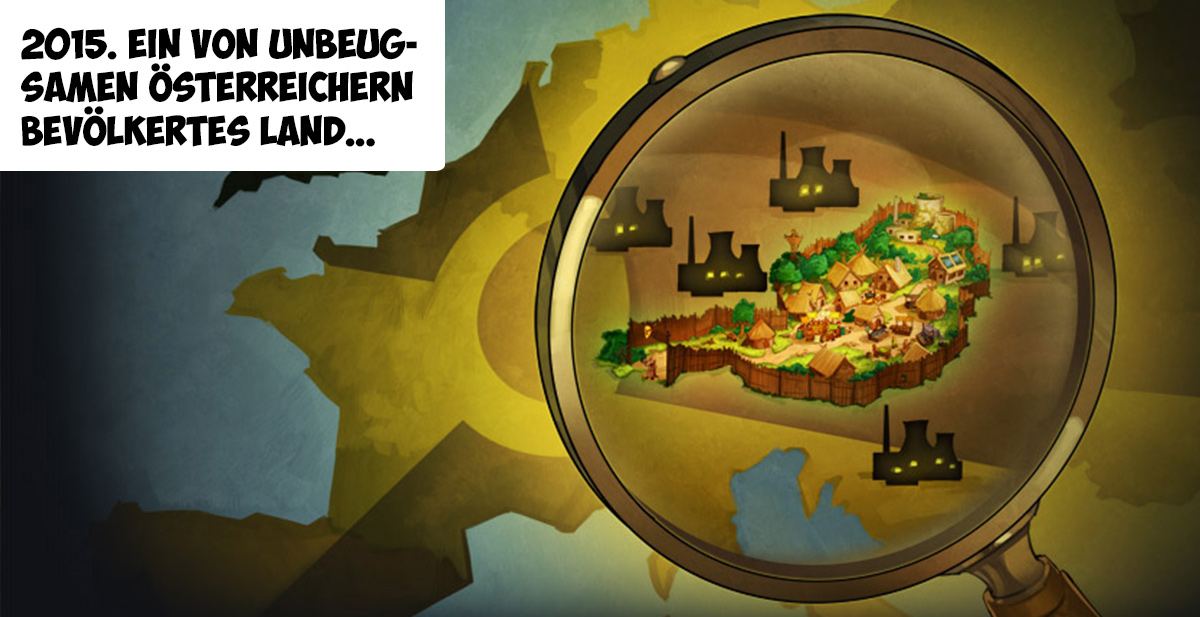by Florian Bayer

As I was born and raised in Austria I had been rejecting nuclear power production for most of my life, without a special interest in the issue. It simply occurred to me that the technology in question came along with too many uncertainties and risks. In that sense it seemed obvious that a technology of this kind was no solution for future energy demands. Fullstop.
However, throughout the last few years I repeatedly turned towards the issue of nuclear power production. It makes a good case for reflecting different aspects of the relations between science, technology and society. As a consequence of this research interest, I became acquainted with work in STS that highlights the role of technopolitical cultures in shaping the relationship between societal actors and technologies. From this perspective it became quite clear that “my convictions” on nuclear power production were not the result of “critical” engagement with nuclear technologies. Quite the opposite: A strong anti-nuclear position is part of Austrian national identity, a connection that emerged and stabilized in the context of the 1986 reactor explosion in Chernobyl. This way a long lasting controversy on nuclear power production that had started in the early 1970s has been resolved. STS scholarship demonstrates, how this anti-nuclear position is built on a sociotechnical imaginary of keeping certain technologies out of Austrian territory. The concept of sociotechnical imaginaries both stresses that forms of thinking are mediated by social relations and that modernity is pervasively structured by science and technology. Approaching the nuclear case in this manner, we find a specific rationalization of Austria’s history with this technology: “The people” have resisted the introduction of nuclear power production through the anti-nuclear movement and through a public vote in 1978, which resulted in the non-commissioning of a nuclear power plant that was ready for operation (Felt, 2015).
One consequence of this imaginary is that the moment of nuclear enthusiasm, which had seized the industrialized countries in the East and West throughout the 1940s, 1950s and 1960s, is ex post reframed in terms of a “back in the days” position. In other words, nuclear euphoria is attributed to a period in history when the potential dangers and risks of science and technology had supposedly not yet been fully realized and “critically” questioned by civil society. With regard to the anti-nuclear imaginary this makes an outstanding narrative for mobilizing the national collective: In Austria “we” – “the people” – have successfully challenged scientific experts, politicians and the nuclear industry. “We” derived the insight of the obvious irrationality of nuclear power production and transformed it into a prohibition of that kind of technology within the Austrian constitution.
As one repeatedly encounters this understanding of nuclear history in Austria, I decided to challenge it by taking a closer look on nuclear enthusiasm in Austria within my master thesis: “Nuclear Energy Futures. The Appropriation of the Atomic Age in Post-war Austria”. Departing from the assumption that the appropriation of nuclear technologies throughout the “atomic age” occurred in specific technopolitical contexts, I managed to demonstrate how strategic efforts in implementing nuclear science and technology went hand in hand with constructing Austrian national identity and mobilizing the national collective on different occasions. In the mid 1950s “the nuclear” was not only “not questioned.” Being pro-nuclear was the obvious choice for the Austrian patriot. Nuclear technologies were conceptualized as a desired and necessary step towards a specific and inherently Austrian future.
From my point of view the implications of this are twofold: First of all it is important to realize that the dominant position on nuclear power production was completely reversed in Austria. Within a time frame of only two decades the loyal Austrian transformed from being a nuclear enthusiast to an anti-nuclear activist. In this context it is crucial to understand the constitution of the Austrian anti-nuclear imaginary and its specific interpretation of historic events in order to critically reflect one’s own anti-nuclear position and to put it on solid grounds, instead of reinforcing nationalist positions and policies.
Furthermore STS scholarship has to find new ways to not only reflect, but also to criticize the role of the nation, national collectivity and identity within modern forms of imagination and practice. The case of nuclear technologies in Austria exemplifies that this entanglement is as flexible as it is pervasive. Only a profound understanding of how science-technology-society relations are tied to the mobilization of national collectivity – e.g. by conceptual frameworks further questioning how and why the identification of the self with the nation is a central element in the constant and dynamic reproduction of modern capitalism – can again provide solid grounds for action.
Consequently, interventions on technological developments could move from petty actions that mostly serve the mobilization of a national mob towards something that deserves the label “critique”. The recent reactions against British nuclear policy in Austria are only a subtle reminder of this problem. Overt nationalist, xenophobic and racist reactions against nuclear reactors in the Czech Republic and Slovakia have been expressing the demand for such interventions for almost 25 years.
.
References
Felt, Ulrike (2015): Keeping Technologies Out: Sociotechnical imaginaries and the formation of Austria’s technopolitical identity. To appear in Jasanoff, Sheila, and Kim, Sang-Hyung (eds), Dreamscapes of Modernity: Sociotechnical Imaginaries and the Fabrication of Power (Chicago: Chicago University Press): 103-125.
Florian Bayer studied History at the University of Vienna and recently also completed the MA program Science-Technology-Society.